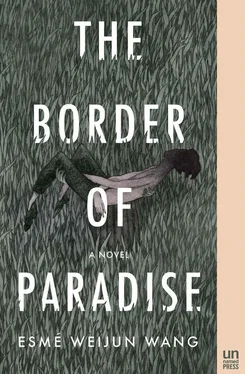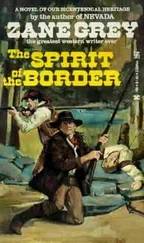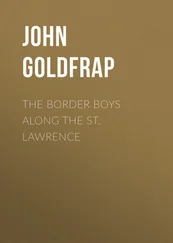Generally, I tried to mind my p’s and q’s when I was with my fellow children, putting up the best front I could. I threw rocks at Louise Bielecki, for example, and I called her snaggletoothed, the memories of which are enough to make me weep into my hands.
At the age of ten I borrowed a slender volume from the library, titled The Man Who Loved Wolves —a tell-all biography about William P. Harding, the infamous National Geographic writer and photographer who lived for years among wolves, and who was known best for being the first man to expose the phenomenon of wolf cannibalism. On the cover Harding posed in a runner’s crouch atop a cliff, with his hands on the backs of two large, sitting wolves. His facial expression suggested a deep-seated anguish extant since birth. What drew me to this book was not the cover, however, but Harding’s quote on the dust jacket: “Man and wolf are the same creature — brutal, beautiful, and not meant to be alone.” But while I sprawled out on my bed, slowly paging through the saga of Harding’s life, the scenes of wilderness and wolves gave way to a lurid depiction of his alcoholism and suicide, and this I could not comprehend. To be sure, my parents drank; but they had never fallen down a flight of stairs and broken four ribs and an arm, as Harding had, nor had they even considered (I was certain of this) leaping off a cliff to be picked at by vultures for days before their rotting corpses were discovered, again as Harding had.
Remembering it today, my bafflement is almost touching. That a man could purposefully end his own life, and in so doing give up his most beloved things, was truly beyond my understanding. Yet from my childish, perhaps preconscious aversion to the idea of Harding’s suicide, I can discern an attraction — an inability to let go of the horror, as I had failed to set aside my concerns for Flopsy and Leo.
I can safely say that William P. Harding was solely responsible for my becoming a preadolescent insomniac. My attempts at sleep tangled with images: Harding’s plummet; a pack of wolves swarming upon its weakest member; blood spurting thin as water, leaking thick as honey. Panicked, I ran to my desk, grabbed the book, and shoved it into my trash can, beneath the tissues and papers, but even that wasn’t enough. I snuck the can outside my bedroom door and closed myself in. I remember holding my hand palm-out as some kind of protection. I know that such inclinations and incidents may not seem like much, and that they are not my fault, but the fault of circumstances beyond my control. But to this day, I suspect that I planted the seeds of my own suffering without having any notion of consequence.
The doctors rarely used clinical terms to address my sleeping problem. They said I had nerves, and recommended to Matka pharmaceuticals with futuristic names. I never told anyone about William P. Harding because, from the beginning, they seemed determined to be the ones with the answers; I’ve never known any profession to be surer about its own expertise than the one with the stethoscope.
There is a possibility, although I try not to think about it, that my children will inherit this madness. In other ways I’ve given them the most I could. I wanted to give them everything. I tried to teach William and Gillian about the Bible and Virgil and the importance of language, which is not easy to do with their mother being the way that she is; but they are quick studies, and I can tell they have the potential for outstanding intellects. It’s too early yet to tell if there’s something unsavory lurking, but if there is, I haven’t seen it. No one deserves this, least of all those two. If I could do anything, anything at all, I’d ensure that their realities remain strong as bricks, as solid as diamonds.

Naturally, insomnia interfered with my schoolwork, which I became too dull-headed for; and when Matka, upon receiving my report card, tentatively visited my bedroom after dinner to ask if everything was all right, I vaguely gave a half-truth, which was that I was having trouble sleeping. A groove folded between her eyebrows. She sighed, the paper in her hands creasing into her lap, and said, “I’ll have to tell your father.” She meant the grades, of course, never the insomnia. And Matka turned to me and smiled one of those smiles propped up by many things, but not by happiness. She loved me all her life, but I did wonder how many children she would have wanted if she’d been able. At that age I knew only that I’d never have a brother or sister, let alone a pack of them, but not why. She did tell me later, when I returned to Greenpoint with Daisy, that she’d had a near-fatal hemorrhage when I was born, and everything had been removed — uterus, fallopian tubes, ovaries — which saved her, but meant I would always be her only child. She said this bitterly, tapping a cigarette into the sink, her hands trembling so that she almost dropped it in with the dishes. That medical crisis also made her sick, I realized later, as a consequence of depleted estrogen.
Insomnia. Wolves. Matka’s concern for me. My grades. The war had ended by then, and the atmosphere at home and school seemed perpetually on the brink of a great unraveling. No one close to us had died. My parents’ closest friends, the Pawlowskis, were childless, though apparently Mr. Pawlowski had a nephew from Long Island who lost a leg in combat, and some of the kids I knew from St. Jadwiga had lost a brother or had a brother newly, and I assumed happily, home. For us the end of the war meant that the Nowak Piano Company would return to making pianos, although whether those pianos would then find buyers was a new anxiety to be conquered. This question gave Ojciec ulcers, which I’m sure Matka was disinclined to make worse with my disappointing report card.
But as she’d said, she did have to tell him, and he was unhappy. I’d always been decently athletic and scholastically impressive, and the new Cs and B-minuses bewildered him.
“What’s gone wrong with you?” he asked at breakfast. “It’s not a girl, is it?”
“No.”
Ojciec was a small man, not where I got my height; he was compact and had a thin flop of dark blond hair across his pate, which he managed with pomade, and wore a pair of small, round wire-rimmed glasses that were always slipping down his nose. And he was always hot — standing near my father, you could feel the energy radiating off him. He put down his fork with a clatter and said, “You’re growing up, David. It’s important that you learn to take responsibility. As you get older, the responsibilities you take on will be more than letters on a piece of paper.” He nudged my report card. “Screwing up ends up meaning losing thousands of dollars, means losing your shirt. And the older you get, the more ways there are to screw up.”
That was the end of his lecture. He pushed his plate away and stood, hurrying to ready himself for a day of factory oversight. Matka, who had been putting away dishes, walked Ojciec to the door, her hand on his back, saying nothing.
But the following week he announced that I was to attend an important meeting with him because I was growing up, and thus needed to go to the manufactory with him. He said that I needed to see how the pianos were put together because the Nowak Piano Company was a family business, and had been since my dziadek had passed the business to him, as Ojciec would to me; I was responsible for carrying it on as the last child of the Nowak line. I’d need to learn every aspect of the company’s operations, including how to manage the workers so that they would only go so far as to gripe about their wages and hours, but would not rebel or leave or, worse, unionize; how to recognize whether a piano was finely tuned or no better than any heap of wooden garbage thoughtlessly nailed together. I needed to understand the intricacies of voicing. I would watch my father negotiate with new dealers, who were cads and cheats in comparison with the men who had known my grandfather years ago, and used to treat the Nowak name with respect, but were now out for themselves because they, too, had suffered when the war came, and shrewdness mattered more to them than decency. If I continued to “refuse to grow up,” as he obliquely referred to my slippery grades, and to behave no better than a modern-day boy without a shadow, I’d never be a capable successor. He would bring me to an important meeting in the coming week. “It will be part of your education,” my father said.
Читать дальше













